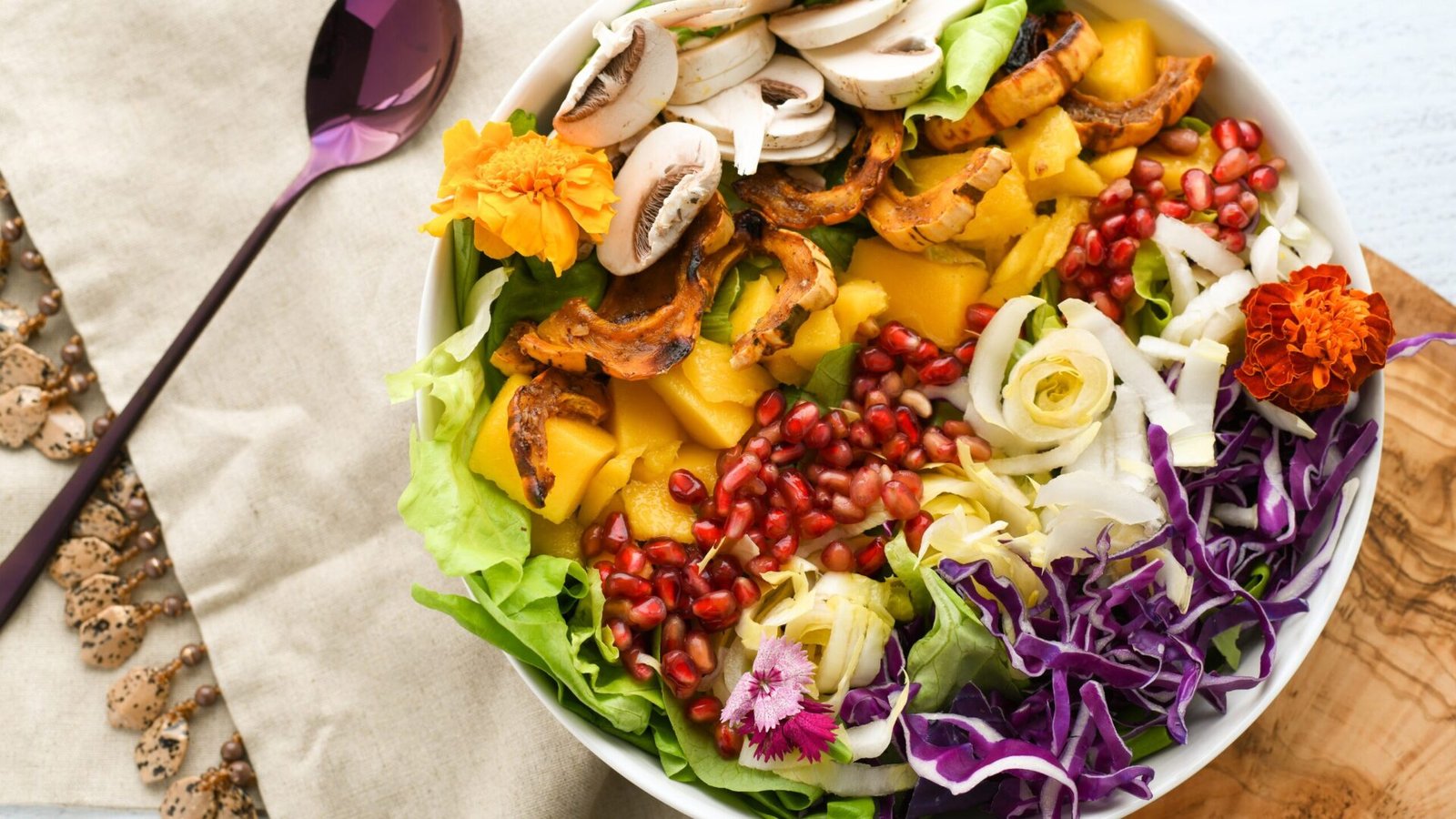
🌿 Why Vegan Nutrition Matters
So, you’ve decided to explore a plant-based lifestyle — amazing! 🌱 But like any new adventure, you want to make sure you’re getting all the nutrients you need. The good news? A vegan diet can be healthy, balanced, and delicious if you know the basics of vegan nutrition.
Going vegan isn’t about perfection — it’s about learning to nourish your body with colorful plants, tasty grains, legumes, nuts, seeds, and whole-food goodness. Let’s break it all down in simple, practical steps.
✅ “Nutrition is the foundation of your energy, mood, and overall well-being.”
🥗 1. Understanding Vegan Macronutrients
Macronutrients are the building blocks of your daily meals: protein, carbohydrates, and fats.
Getting the balance right helps you feel full, energized, and satisfied.
1️⃣ Protein
Contrary to the old myth, vegans don’t need to worry endlessly about protein — but it’s smart to know your best sources.
Top plant-based protein sources:
Lentils, chickpeas, beans
Tofu, tempeh, edamame
Quinoa, buckwheat, amaranth
Nuts & seeds (chia, hemp, flax)
Seitan (if you’re not gluten-free)
👉 Quick tip: Combine grains and legumes for a complete amino acid profile.
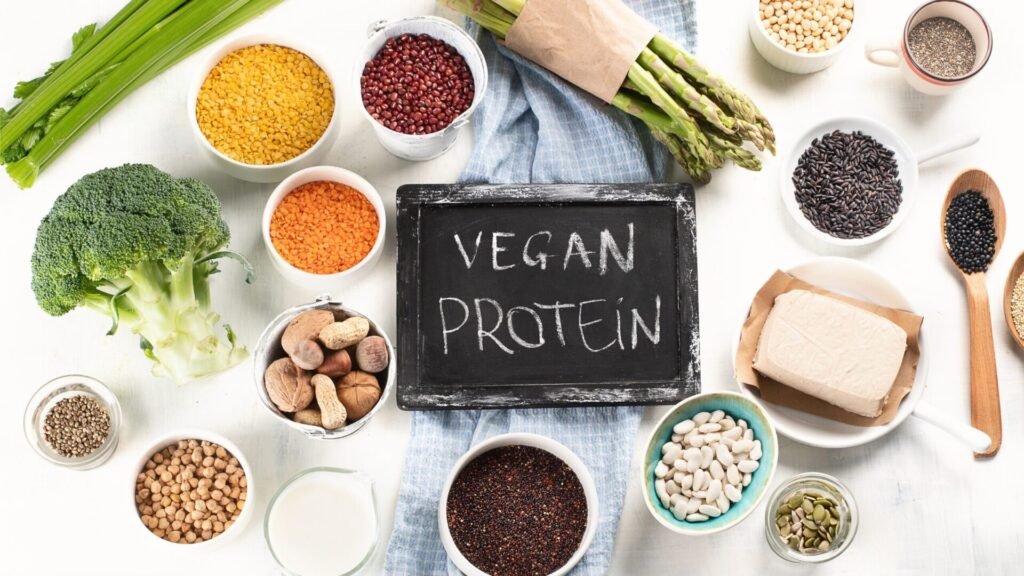
2️⃣ Carbohydrates
Carbs are your body’s main fuel, especially if you’re active. Not all carbs are created equal!
Best choices:
Whole grains (brown rice, quinoa, oats)
Starchy veggies (sweet potatoes, squash)
Legumes and pulses
Fruit (fresh and dried in moderation)
Fun fact: Fiber — found in whole plant foods — keeps your digestion happy. 🌾

3️⃣ Healthy Fats
Fats help your brain, hormones, and cells stay strong.
Smart plant-based fats:
Avocados 🥑
Nuts & nut butters
Seeds (chia, flax, hemp, pumpkin)
Cold-pressed oils like olive or flaxseed oil
👉 Tip: Use a mix of nuts and seeds daily for omega-3s.
🌱 2. Key Nutrients Vegans Should Know
While plant-based eating covers most nutrients easily, there are a few essentials to keep on your radar:
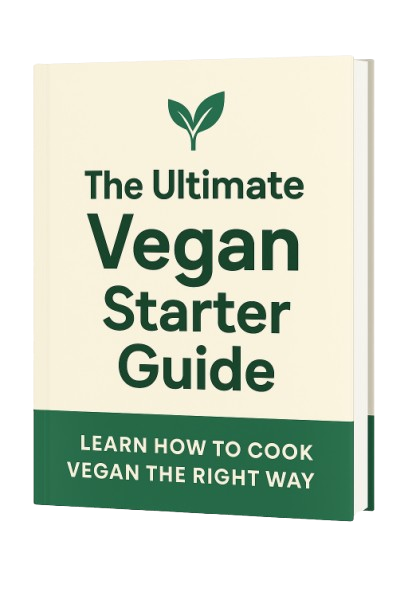
Download Our Free eBook
Get your copy of The Ultimate Vegan Starter Guide and begin your plant-based journey today.
✅ Vitamin B12
The big one! B12 isn’t naturally present in plants, so fortified foods or supplements are a common choice.
Many vegans choose plant milks, cereals, or nutritional yeast with added B12.
Essential for nerve function and energy production.
How to get it:
Fortified plant milks and breakfast cereals
Nutritional yeast (check label for B12)
B12 supplements (cyanocobalamin form)
✅ Rich Vegan Sources:
| Food | Serving | B12 (µg) |
|---|---|---|
| Fortified soy milk | 1 cup | 2.4 |
| Fortified cereal | 1 serving | 1–3 |
| Nutritional yeast | 1 tbsp | 2 |
Practical tip: Some check B12 levels with their GP occasionally.
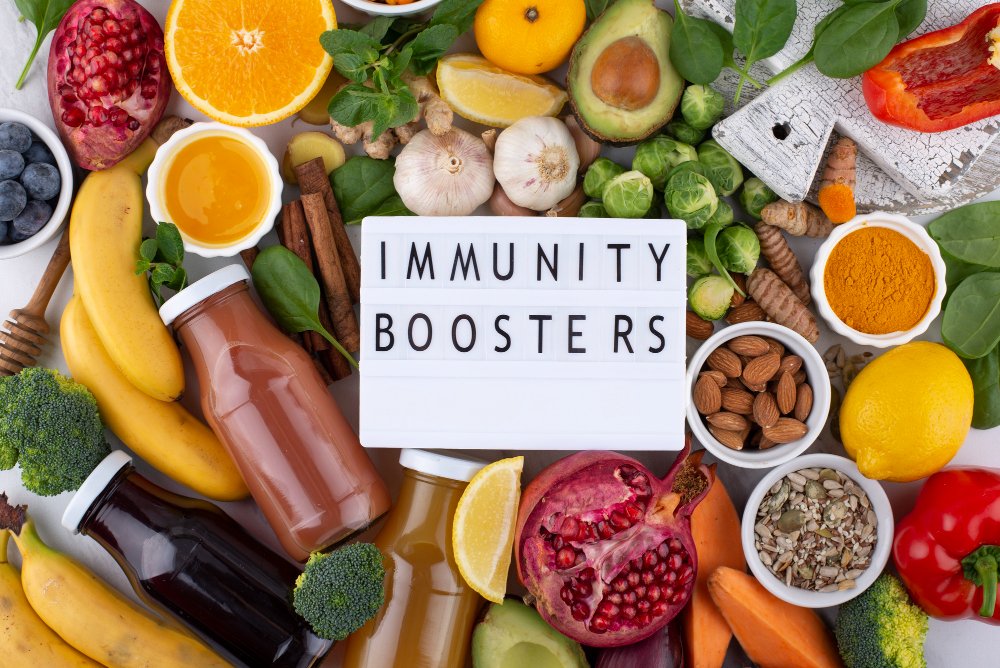

✅ Iron
Did you know plant-based iron (non-heme) is slightly different from animal-based iron? It’s less readily absorbed, but pairing it with vitamin C boosts absorption.
Supports oxygen transport and energy levels. Plant-based iron (non-heme) is less absorbable, so pair it with vitamin C!
Tips to boost absorption:
Add lemon juice to lentils or beans
Eat bell peppers or oranges with whole grains
✅ Rich Vegan Sources:
| Food | Serving | Iron (mg) |
|---|---|---|
| Lentils, cooked | 1 cup | 6.6 |
| Chickpeas | 1 cup | 4.7 |
| Tofu | ½ cup | 3.4 |
| Spinach, cooked | 1 cup | 6.4 |
👉 Squeeze lemon on greens or enjoy citrus fruit with your meal for better iron uptake.
✅ Calcium
Not just for dairy! Plants have plenty.
Needed for strong bones and teeth.
Key foods:
Fortified almond or soy milk
Calcium-set tofu
Broccoli, bok choy
✅ Rich Vegan Sources:
| Food | Serving | Calcium (mg) |
|---|---|---|
| Fortified soy milk | 1 cup | 300 |
| Tofu (calcium-set) | ½ cup | 250 |
| Bok choy | 1 cup | 160 |
✅ Omega-3 Fatty Acids
Essential for brain health. No fish needed!
✅ Best vegan sources:
Chia seeds (1 tbsp = ~2.5g ALA)
Ground flaxseeds
Walnuts
Hemp seeds
Tip: Sprinkle chia or flax on oatmeal, smoothies, or salads daily.
✅ Vitamin D
Sunshine vitamin! 🌞 Many get enough through sun exposure, but in winter months, some choose fortified foods or a gentle supplement.
Supports calcium absorption and immunity.
Sources:
Sunshine! Try to get 10–20 minutes on arms/face daily.
Fortified plant milks, mushrooms exposed to UV light.
Consider D2 or vegan D3 supplements in winter.
🥦 3. How to Build a Balanced Vegan Plate
Let’s make this super practical.
A simple visual:
✅ ½ Plate Veggies & Greens
✅ ¼ Plate Whole Grains or Starchy Veggies
✅ ¼ Plate Plant Protein
Add a sprinkle of nuts or seeds for crunch and healthy fat.
✨ 4. Easy Meal Planning Tips for Vegan Nutrition
✔️ Meal prep your grains in batches.
✔️ Keep cooked legumes in the fridge.
✔️ Use frozen veggies when you’re busy.
✔️ Stock your pantry with beans, oats, quinoa, nut butters, seeds.
✨ Example Day Menu
🥣 Breakfast: Overnight oats with chia seeds, berries, almond butter.
🥗 Lunch: Buddha bowl with quinoa, roasted chickpeas, kale, avocado, tahini dressing.
🍛 Dinner: Lentil curry with brown rice and steamed broccoli.
🥛 Snacks: Mixed nuts, fruit, or protein smoothie.
✅ Pro Tip: Drizzle vitamin C-rich lemon or lime juice on iron-rich meals!
🤓 5. Common Vegan Nutrition Myths — Busted!
✅ “Vegans can’t get enough protein.”
Yes, they can! Variety is key.
✅ “You’ll always feel tired on a vegan diet.”
Energy comes from balanced meals, not animal products.
✅ “Vegans need complicated supplements.”
Most people do just fine with B12, D in winter, and maybe omega-3s.
🥗 Easy Meal Planning Tips
1️⃣ Batch cook grains and beans for the week.
2️⃣ Chop veggies ahead to save time.
3️⃣ Keep healthy snacks ready: hummus, nuts, fresh fruit.
4️⃣ Rotate different legumes for variety.
5️⃣ Use herbs & spices to keep flavors exciting.
6. Sustainable Eating = Nutrient-Dense Eating
Eating plants isn’t just good for you — it’s gentle on the planet too.
Shop local, eat seasonal, and reduce packaged food when you can.
✅ 7. Smart Pantry Staples for Vegan Nutrition
Canned beans and lentils
Nut butters and nuts in bulk
Brown rice, quinoa, oats
Frozen fruit and veggies
Nutritional yeast
Flax, chia, hemp seeds
💚 8. Final Practical Tips
✔️ Listen to your body: Everyone’s needs are different.
✔️ Stay curious: Try new recipes and new foods.
✔️ Celebrate small wins: Every plant-based meal counts!
Still Curious About Veganism?
Our free eBook answers the most common questions and helps you transition smoothly.
Download Now🔍 Explore More Vegan Basics
- ✅ Vegan Pantry Essentials
- ✅ Vegan Transition Tips
- ✅ Common Vegan Myths Busted
- ✅ Easy Beginner Recipes
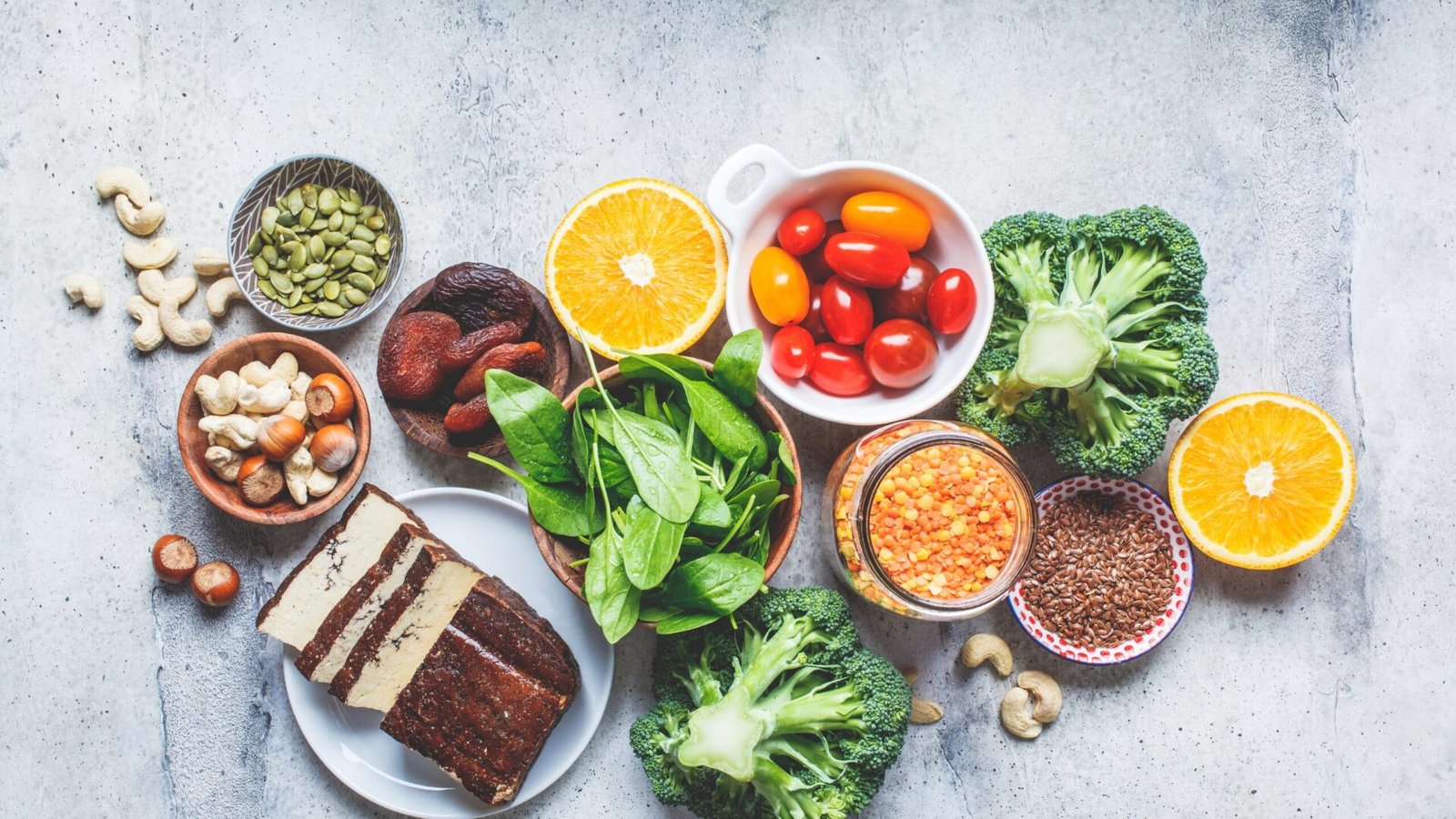
Frequently Asked Questions
✍️ Author's Note: This article was written by The VeganVus Team, a group of passionate plant-based creators dedicated to helping you live a kinder, healthier life. 💚
🌿 VeganVus Recommends
- ✅ Best Vegan Cookbooks – to get inspired in the kitchen.
- ✅ Top Plant-Based Protein Sources – practical for meal ideas.
- ✅ Reusable Pantry Jars – keep grains, seeds & legumes fresh.
📚 Want to Learn More About Veganism?
Explore Vegan Basics
Vegan Insights
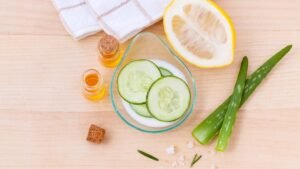
Top Cruelty-Free Vegan Body Care Essentials for Every Season
Finding the perfect body care routine that’s both vegan and cruelty-free can feel like a

How to Build a Stylish Vegan Wardrobe (Without Breaking the Bank)
Building a wardrobe that’s both fashionable and ethical might sound expensive — but it doesn’t

How to Build a Sustainable Vegan Home: Simple Steps for Greener Living
Living a compassionate lifestyle goes beyond what you eat — it extends into your home,

10 Easy Vegan Swaps to Live a More Sustainable Lifestyle
Embracing a sustainable vegan lifestyle is one of the most powerful ways to reduce your
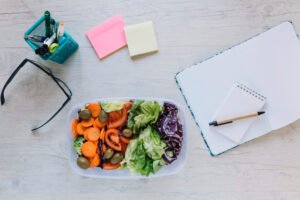
How to Create a Weekly Vegan Self-Care Plan (Relaxation, Nourishment & Mindfulness)
Embracing a vegan lifestyle goes beyond food — it’s about nourishing your entire being 🌿.


